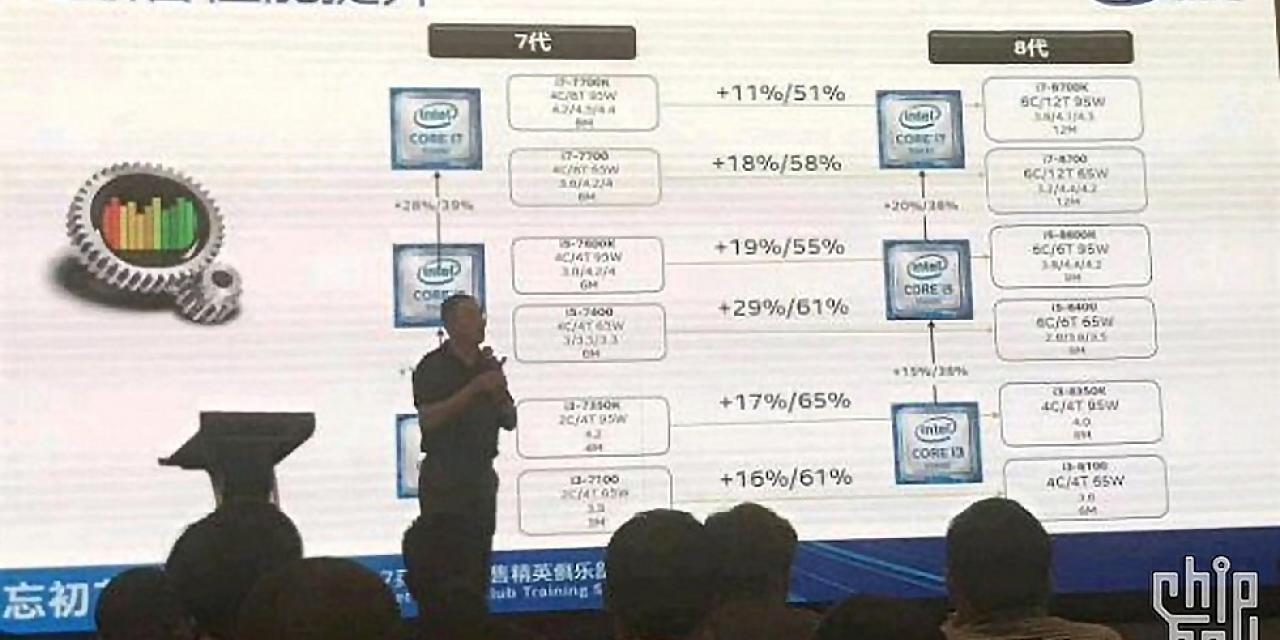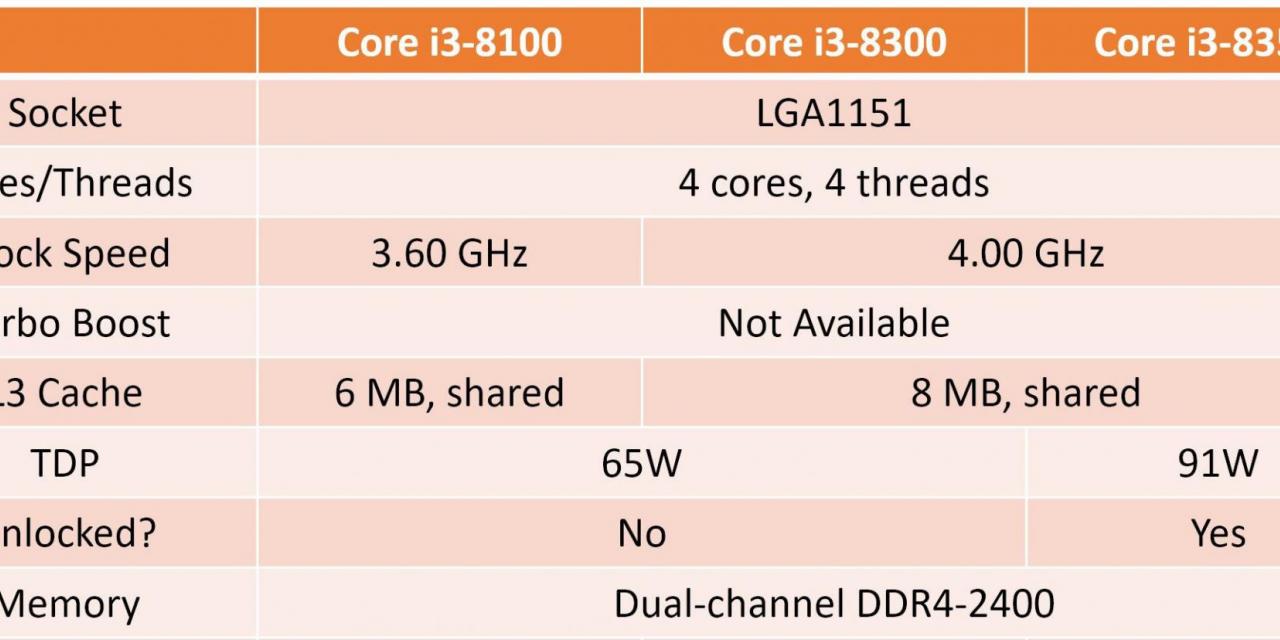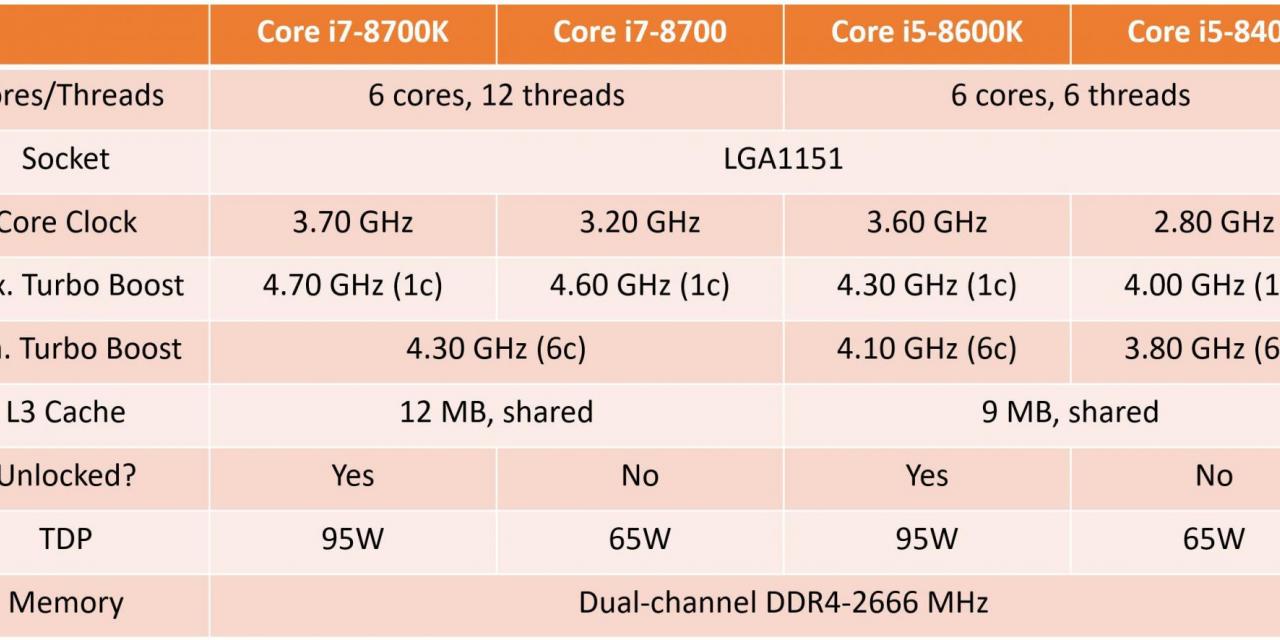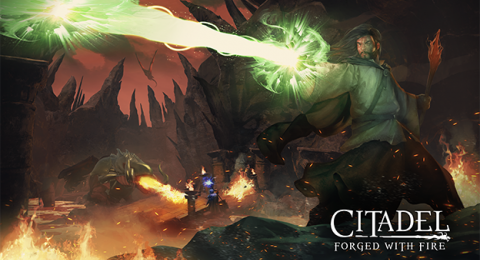


Intel's eighth generation of CPUs isn't too far away at this point, but how will it fare when it goes up against AMD's impressive Ryzen showing from earlier this year? One way it could look to compete is with additional cores, but it's the boost frequencies of the chips which could deliver the big performance gains this generation.
We won't hear about Coffee Lake right from the Intel horse's mouth until next week, but an early slide leak gives us a very good look at what we can expect from it. and the specifications are rather impressive.
The most obvious update off of the bat is that throughout the product stack, Intel is adding more cores and threads. Its i7 parts are now hexacore chips, with 12 threads a piece. The Core i5 range too uses six cores, while the Core i3 end of the spectrum are now all quad core, likely leaving the Pentium range to deliver dual core offerings for much lower-end hardware.
While the cores will help close the gap with AMD's Ryzen hardware though, Intel is pushing core clocks with the new-generation too. At the top end with the i7-8700K it has a core clock of 3.7GHz and turbos up to 4.3GHz with six cores enabled. If the application is only using one though, it can boost up to 4.7GHz, which suggests these chips could have some serious overclocking room.
That chip is unlocked, though its non-K counterpart isn't and has a base core clock of just 3.2GHz. However, it can still hit the same frequencies as its unlocked bigger brother.
Even Core i5 chips can turbo up to 4.1GHz with all six cores running flat out. The Core i3 chips might lack turbo functionality, but even they operate at up to 4GHz, with the lowest end 8350K coming unlocked for some serious OC potential in lower powered devices.








